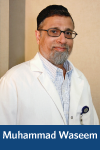The teaching of ethical principles is included in many courses that train researchers on “responsible conduct of research”. The IRB…
Read MoreInnovations in medical practice are critical to the advancement of medicine, but the question of “innovative treatment” versus “medical or…
Read MoreIn the regulatory world, time is a precious commodity. Though we are frequently tasked with high volumes of work, taking…
Read MoreThe US Department of Health and Human Services (HHS) (and other Federal Agencies) plans to implement the revised version of…
Read MoreAs research activities go, the use of archival tissue has ranked pretty low on my list of ethical concerns. After…
Read More




